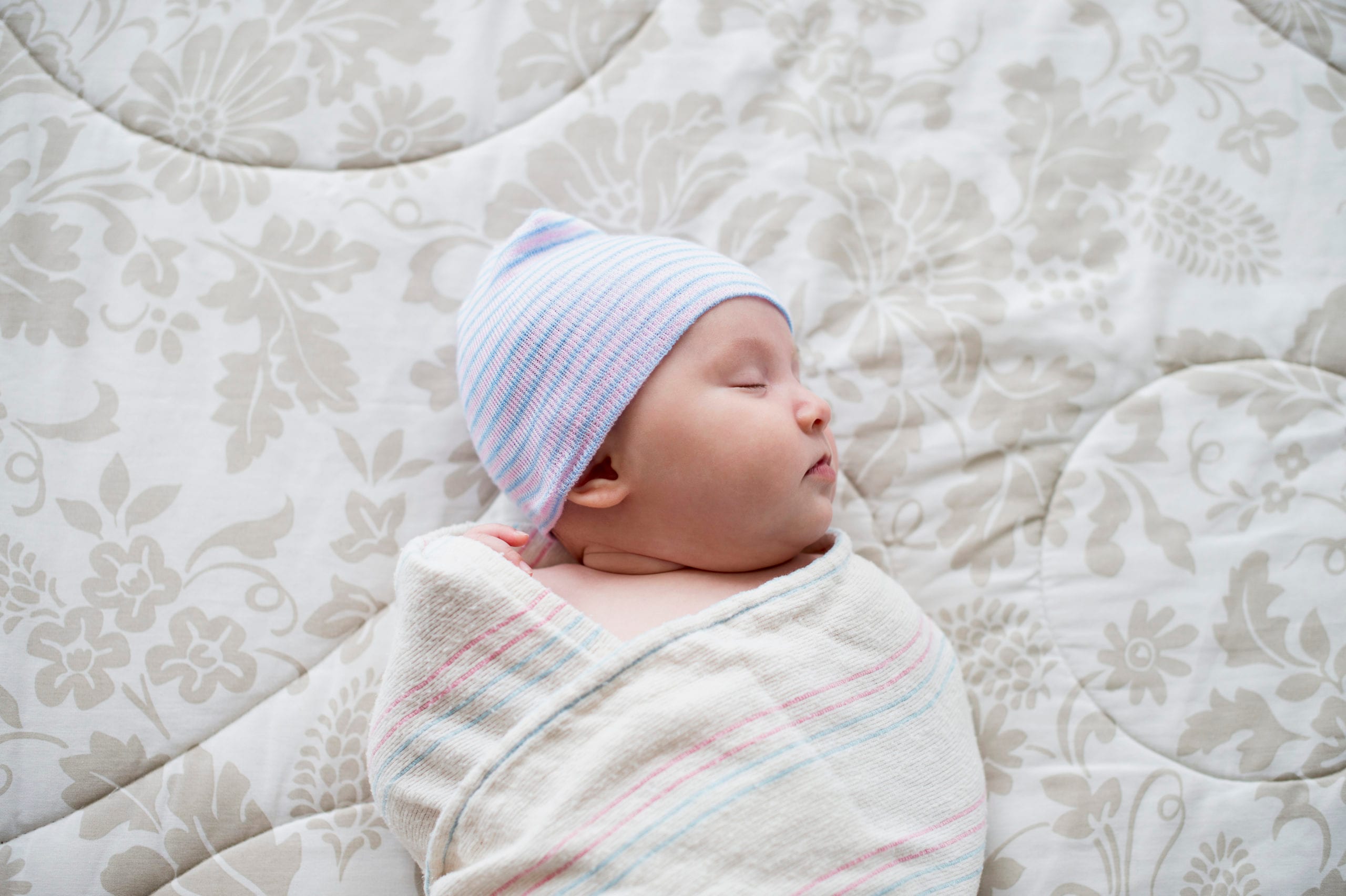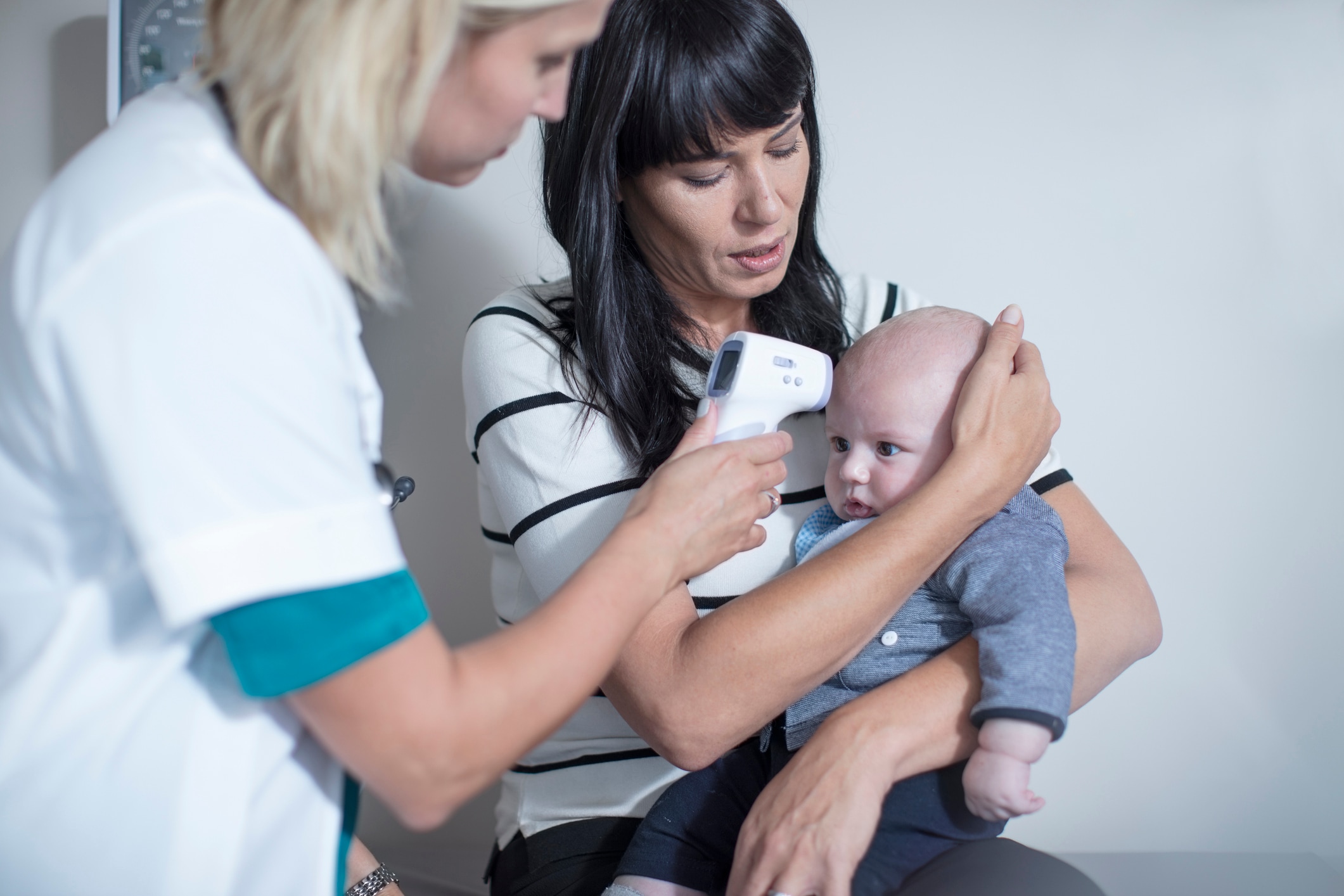Since the introduction of the COVID-19 vaccine, health experts have worked overtime to combat misinformation about the potential side effects of the shots. One of the most pervasive concerns about the vaccine is the belief that it could potentially reduce chances of conception or otherwise affect the fertility of those who receive it. Now, a long-term study joins the chorus of health experts confirming that there is no link between infertility and COVID vaccines.
The study, published this week in the American Journal of Epidemiology, was conducted by researchers from the Boston University School of Public Health. Researchers analyzed data from more than 2,100 American and Canadian women between the ages of 21 and 45 as they tried to get pregnant without fertility assistance over the course of a year. Participants had either been vaccinated against COVID-19 or recovered from a spontaneous COVID infection, and they completed questionnaires every eight weeks regarding their sociodemographics, lifestyle, medical factors and their partner’s health information.
The study found that fertility rates among vaccinated women and men were nearly identical to those of unvaccinated participants. This remained true regardless of the number of vaccine doses a person had, the brand of vaccine, their infertility history, their occupation and what geographic region they lived in.
“Our study shows, for the first time, that COVID-19 vaccination in either partner is unrelated to fertility among couples trying to conceive through intercourse,” Amelia Wesselink, a study co-author and research assistant professor of epidemiology, says in a press release.
While vaccines had no impact on fertility, being infected with COVID-19 was found to have a slight negative impact on fertility in men up to 60 days after infection. This is not the first study to draw a link between COVID infection and fertility struggles in men. A separate study published in December 2021 found lower sperm quality and increased reproductive dysfunction in men who had recovered from COVID-19.
The news that COVID vaccines do not negatively impact fertility should provide some reassurance for parents who’ve harbored concerns about getting the shots for their kids due to fears around fertility issues. More than a million new pediatric COVID cases were reported in the U.S. during the week of January 13 alone, yet only 30% of children ages 5-11 have received at least one dose of the COVID vaccine. In an October poll by the Kaiser Family Foundation, 66% of parents cited fertility concerns as one of the main reasons for delaying COVID vaccination for their kids.
Misinformation about COVID vaccination and fertility has been so pervasive that the American Academy of Pediatrics (AAP) published official guidance for physicians on how to address it. “Unfounded claims linking COVID-19 vaccines to infertility have been scientifically disproven,” the organization states. “There is no evidence that the vaccine can lead to loss of fertility.”
The Centers for Disease Control and Prevention (CDC) reports that the most common vaccine side effects for kids ages 5-11 and 12-15 include:
- Injection site pain.
- Fatigue.
- Chills.
- Myalgia, or muscle aches.
- Headache.
- Nausea.
- Fever.
Rochelle Walensky, the CDC director, writes on Twitter that side effects are generally “mild to moderate & transient, most frequent the day after vaccination.” She adds, “Parents, I encourage you to get your eligible children vaccinated to protect them from COVID-19.”
Fertility fears are just one of many myths about the COVID vaccine that have been disproven. This latest study joins a growing body of research that proves COVID vaccines are safe and effective for the majority of people.





